Tangent: Summer Edition
Just a bunch of appetizers for you.
Hello friends,
Hope you are enjoying summer, or winter, or just weather if you live close to the equator1, I’m back with another digest.
You know when you invite friends over for dinner and the dish you are making isn’t remotely close to being ready, so you open up some tortilla chips and make some guacamole and hope that satiates their hunger for 15-20 minutes? This is what this is. But instead of just chips and tortillas, I am giving you a bunch of appetizers that feel like a full meal.
I’ll be sharing a some reflections, some reads, and tunes for you to enjoy. By the way, this email may be too long to read in your inbox, so click on the Tangent header if it gets cut off.
Reflections
“I can’t be bothered”
Typically, you put those words on the lips of a petulant teenager—not a 34-year-old man. Yet, this feeling has become a mantra. It’s been spurred by an allergic reaction to the dynamics of sharing your work on the Internet: To mind subscriber growth. To “build in public” and announce every step; broadcasting to the world that you are, in fact, doing something. To participate in the artifices that have emerged from being chronically online and trying to scrape some financial value from it.
Perhaps it’s naive to think that this dynamic can be ignored if you are trying to get your work noticed and eventually make a living from it. After all, not everyone has a Theo Van Gogh—someone willing to shill your work incessantly out of sheer devotion and fraternal love. Whether these dynamics are unavoidable elements of creating on the internet or not, what I do know is that they have nothing to do with creation or craft. Cognitively, I know that ruminating on these is as useful to me as my Google Home nowadays.
Particularly for writers, obsessing over how to be online seems like a trap door on a process that is fairly straightforward: Shut the fuck up, listen to what your heart is telling you, write it down, edit it so that the reader you have in mind will feel things, learn things, and just maybe, shape their perception. That’s it. That’s the whole thing. The books on writing craft are all different vantage points of the same moon.
“I can’t be bothered” has also become my general statement towards consuming social media or feeling like I need to have a pulse on the internet zeitgeist. Sunny days in Seattle have invited me to really assess the opportunity cost of staring at a screen nibbling at the thoughts of others. Twitter is too sycophantic. Substack is too navel-gazy. Instagram is a kaleidoscope of manufactured yearnings. This zeitgeist taps me on the shoulder incessantly like a toddler saying “I’m ova hewe!”
This is all a part of a broader effort to claim my attention back.
I want my attention back to hear my own thoughts and ideas. I want to follow the fictional characters my mind is concocting—observing them like a journalist seeing the events of their life unravel and documenting them. I want my attention so that I can read words, from a book (gasp), for an hour without becoming impatient or falling asleep. I want to not just notice beautiful paragraphs, but study why they are so beautiful and how I can summon similar beauty with my own words. I want to be wholly consumed by the process of writing; even if every paragraph makes me second-guess my life choices.
So I’ve been spending less time online. I’m pausing most freelance work this month. I’ve been reading more. I’ve been writing and (throwing most of it away). All of this looks like I’m an iceberg firmly stuck in frosty waters. It’s an incredibly unsettling feeling that is worsened by the innocent question “how are things going?”
But fear not, dear reader; I am not in a state of distress. If you ask me how I am right now, my detailed answer would be: I’m in a molting period where I do not feel effusive about the world, but I also don’t feel hopeless or dejected. It is an extended transformation where I’ve come to learn that any meaningful answer I look for at this point will come as a consequence of my actions more so than what I’m able to explore in my journal.
Hiroshima & Never Again
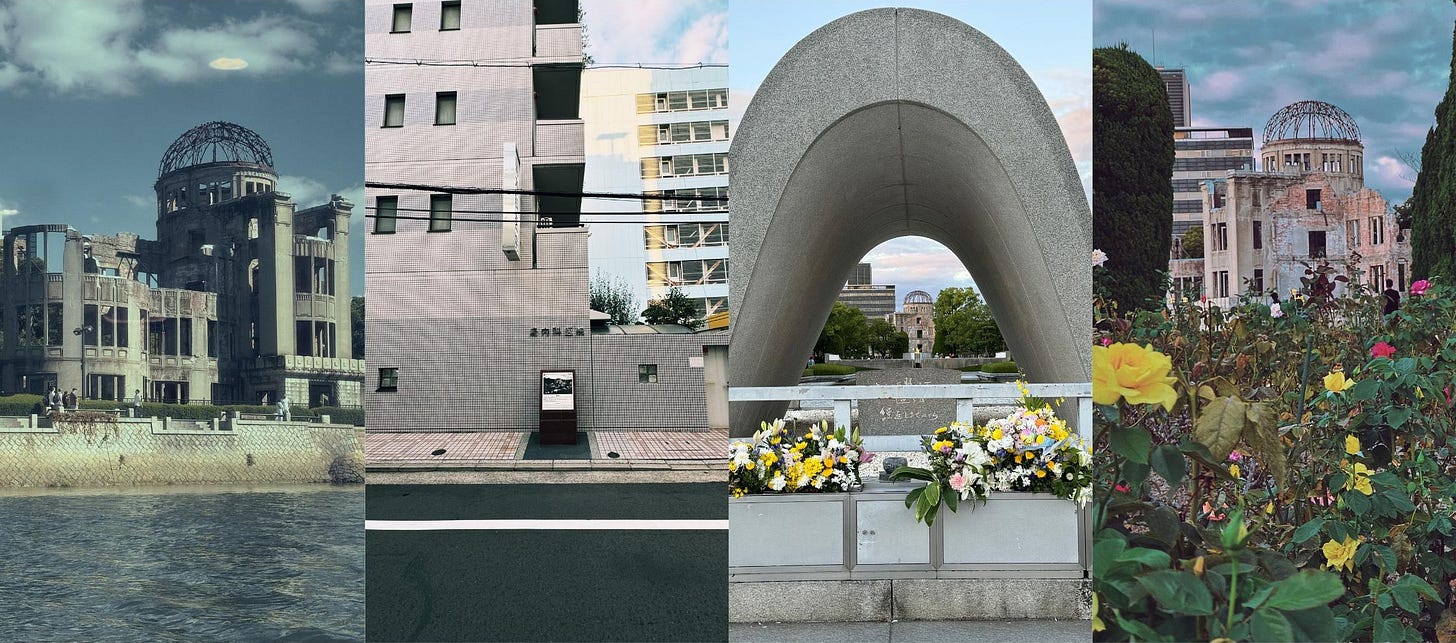
August 6th marked the 80th anniversary of the atomic bomb falling on Hiroshima. My mom and I visited Hiroshima last fall and one of the places that struck us the most was the Hiroshima Peace Memorial Museum. We walked through exhibits documenting the before, during, and after of the city. We read many stories of survivors: those who did not die in the initial blast, but were subjected to the torture that comes with losing everything and enduring a slow, painful death from the radiation. My heart’s heaviness left a permanent imprint in my conscience after our visit.
Our world has these places—epicentres of human horror like Hiroshima, Auschwitz, Phnom Penh—that are turned into museums. They exist to make the scale and depth of suffering so visceral that visitors vow to not let humanity’s cruelty manifest again. They exist to say “never again.”
Unfortunately, it seems like the main lesson to learn from history is that mankind does not learn the lessons from history. The “never again” keeps happening.
I’ve been thinking daily about war and conflict. On how to renounce the simplified narratives of “good versus evil,” while also sensing when you’ve seen enough horror and suffering that remaining indifferent seems to be a grotesque choice. The words still fail me: part horror, part melancholy, part doubt, part fear.
Is it worthwhile to make my thoughts more openly known beyond the few friends I’ve conferred with? Can it create enough waves to stop the horrors we witness every day? I’m not sure.
I do keep thinking about this quote:
“Man desires a world where good and evil can be clearly distinguished, for he has an innate and irrepressible desire to judge before he understands.”
–Milan Kundera
Books
I dreaded summer reading. I remember we were assigned The Hobbit one summer in high school and I put it off until the last week—gulping the words as if it were French onion soup.2
Fast forward half-a-lifetime later, and I’ve never read so many books in one summer. This has been great for my mental health, good for my writing, bad for my bookcase, and terrible for my wallet.
We still have some summer left to go and books on deck, but here are my favorite reads this summer.
The Lathe of Heaven by Ursula K. Le Guin
I fell in love with Ursula’s writing through her interviews. Last year, I picked up a copy of her interview book, Conversations on Writing, and once I read it, I went down the Le Guin rabbit hole.
This book is quirky, lyrical, and quintessencial Le Guin. It follows the story of George Orr, a man that can change reality through his dreams and his relationship with a psychiatrist who has patented a way to manipulate George’s dreams. What I loved most about the book is that it is not a story of hero vs. villain. Instead, it uses this fantastical situation to ask questions of morality, agency, and trade-offs. I like that the book issues no moral judgments, even with the way the story unravels. This was one of my favorite passages:
Asymmetry by Lisa Halliday
This book came out of nowhere—or better said through a Bumble match.3 The best way I can describe this book is “delicious.” The prose made me smirk, chuckle, and go “how did she come up with this?”
This clever novel, winner of the Whiting Award in 2018, is broken down into three sections:
Part I follows the story of a young woman named Alice, who falls in love with a famous writer, Ezra Blazer, who is 40 years her elder.
Part II is a whole different story that follows a man named Amar Ala Jaafari, a Iraqi-American doctor who is flying back from the US to Baghdad to find his missing brother, Sami.
Part III is a transcript of a radio interview with Ezra Blazer.
The book explores the asymmetry of relationships; the age gap and relationship dynamics between Ezra and Alice, the power imbalances between the U.S and Iraq. But frankly, I don’t think you need to find a grand, underlying theme to enjoy this book; it’s just great dialogue, and characters you come to love.
Here’s an excerpt:
The Soul of a New Machine by Tracy Kidder
One of the questions I’ve been pondering this year is how other technological revolutions throughout history felt. It’s common to hear that we live in “unprecedented times,” and while elements of that may be true (Cleopatra didn’t have TikTok), every phase shift in technology probably felt “unprecedented” at the time.
That’s how I stumbled upon this book4, where Atlantic reporter Tracy Kidder follows a company, Data General, in their development of a microcomputer. The premise sounds dull, and that’s where Kidder’s magic comes in. He writes in a novelistic manner that people have come to love from Michael Lewis’ books, for example. Every chapter builds up the stakes for these engineers who were at the bleeding edge of the computing revolution of the 80s. I also came away seeing how both the microcomputer revolution and our current AI revolution mirror each other fairly well.
Here’s an excerpt:
Essays
Flounder Mode by Brie Wolfson
What can be initially read as yet another profile of The Incredible Kevin Kelly (one of the world’s most remarkable polymaths, in my opinion) becomes an exploration of what it means to achieve success in an era where impact seems to be measured in the number of IPO exits and how many commas your net worth has.
Brie is wonderfully honest in this piece and she expresses a lot of the angst I’ve felt growing up professionally in the tech industry, and exploring different ways to find meaning in life. There is something to learn from the levity by which Kelly lives his life, and while it may be easy to believe that him being the anti-thesis to hustle culture is an anomaly, I found myself relieved by the fact that people like him exist in this world—and seem to be pretty content.
Music
Through one of those random moments of algorithmic wizardry, I came across a YouTube short with a snippet from Sixpence None the Richer's performance of their hit, Kiss Me. Now, I can’t stop thinking about kisses.
They are an interlude, a transgression, an escalation. How many songs have been dedicated to this moment? How many of these songs unlock memories of kisses we've experienced? I think it’s one of these uniquely beautiful, human things that music has the power to make us think about these moments, these kisses, that rest in our minds, hearts, and lips.
Here are three songs about kisses that I love listening to over and over again:
Kiss Me - Sixpence None The Richer
Stuttering (Kiss Me Again) - Ben’s Brother5
La Magia de Tus Besos - Grupo Niche
On your way out…
There are just over 400 of you who decided “hey, this guy doesn’t suck…let me subscribe.” I’m infinitely grateful for that. As I wrote earlier in this edition, internet culture bombards us with things that say “pay attention to me!” so the fact that you are willingly choosing to pay attention to me is incredibly flattering.
Now this is going to sound weird…but if my writing does not bring you joy, inspiration, curiosity, then please reclaim your attention, clean up your inbox, and unsubscribe. Contrary to most advice from Growth Gurus™️, I’d rather have a smaller group of readers who get excited when I show up in their inbox, over a bigger group of people that feel “meh” about what I create. So if you’ve been indifferent about this newsletter, consider this your permission slip.
If you do want to stick around, I promise it will be worth it. There are a few pieces I’ve been working hard on and that I’m both excited and afraid to share with you. In the meantime, here some earlier Tangent pieces that recent subscribers might have missed:
See how globalization just waters down everything (shakes fist).
Not a fan.
The woman I matched with was into books so that’s where we started the conversation and she gave me this suggestion. In the following messages she asked to see my writing so I sent her a piece I wrote and then proposed a date. She unmatched…so either she didn’t like the proposed date, or hated my writing (shrugs).
Fun fact: This book was a winner of the National Book Awards 1982 for General Nonfiction.
This video is a delightful time capsule of Internet culture in the early YouTube days.



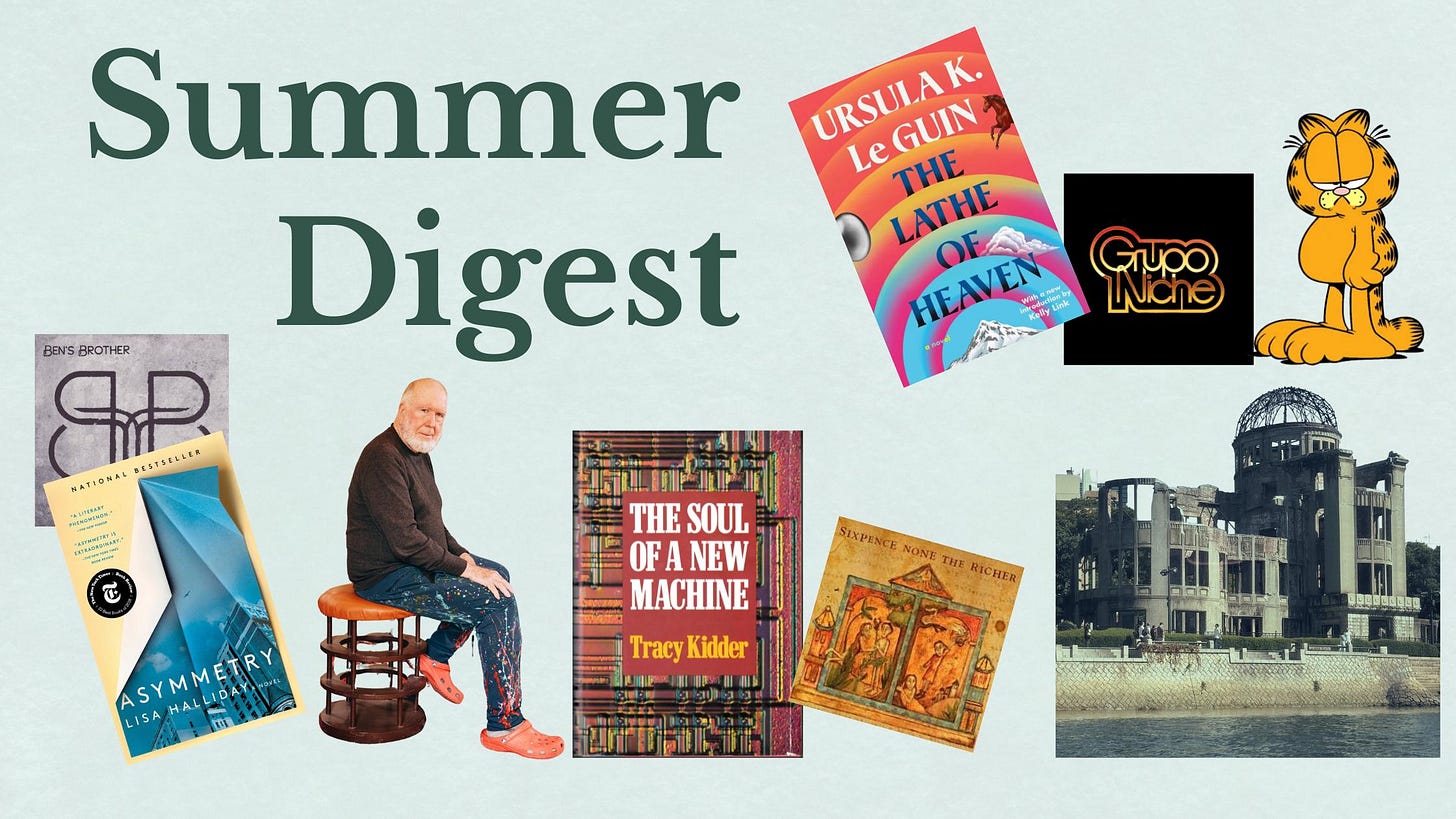

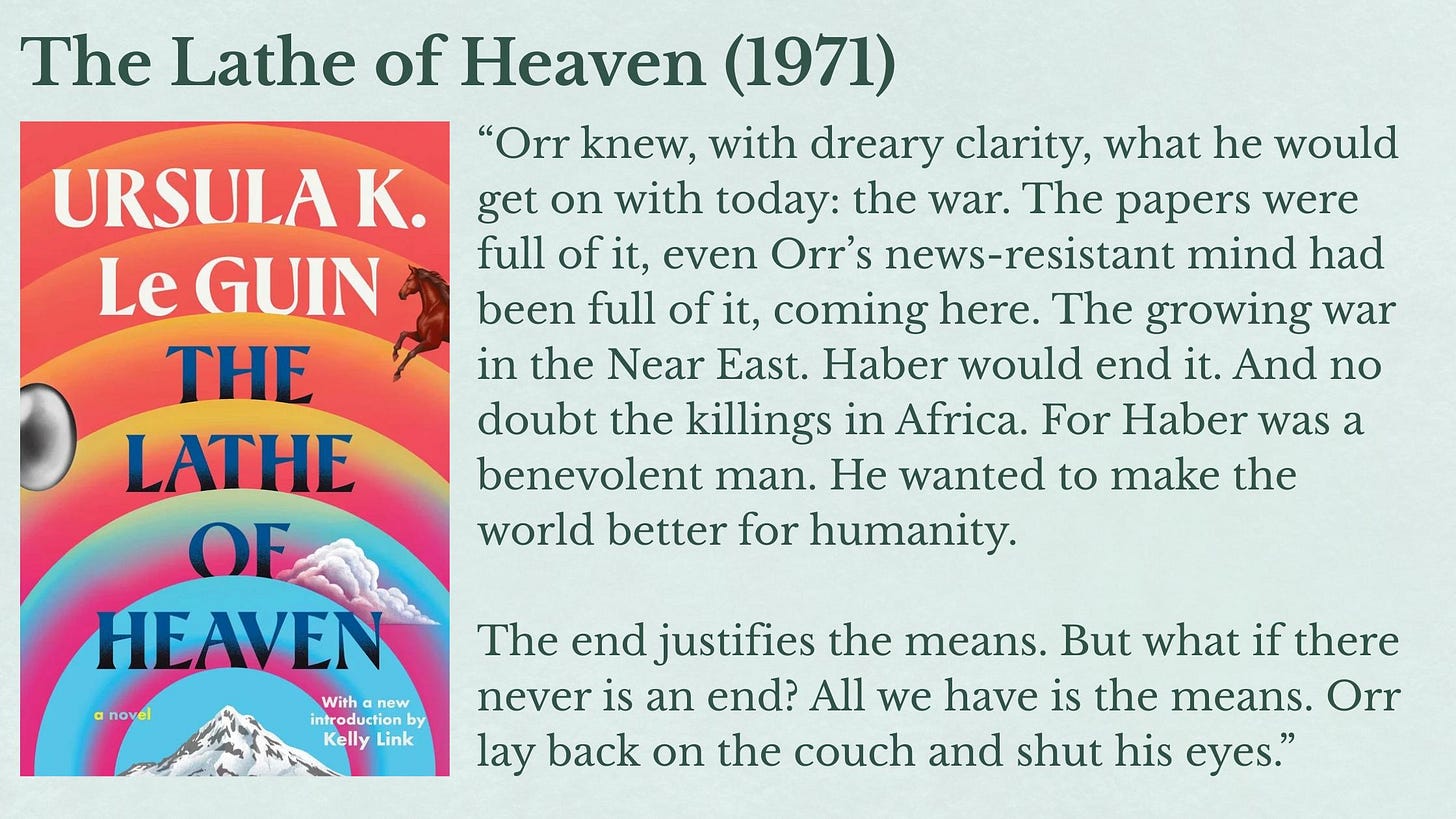
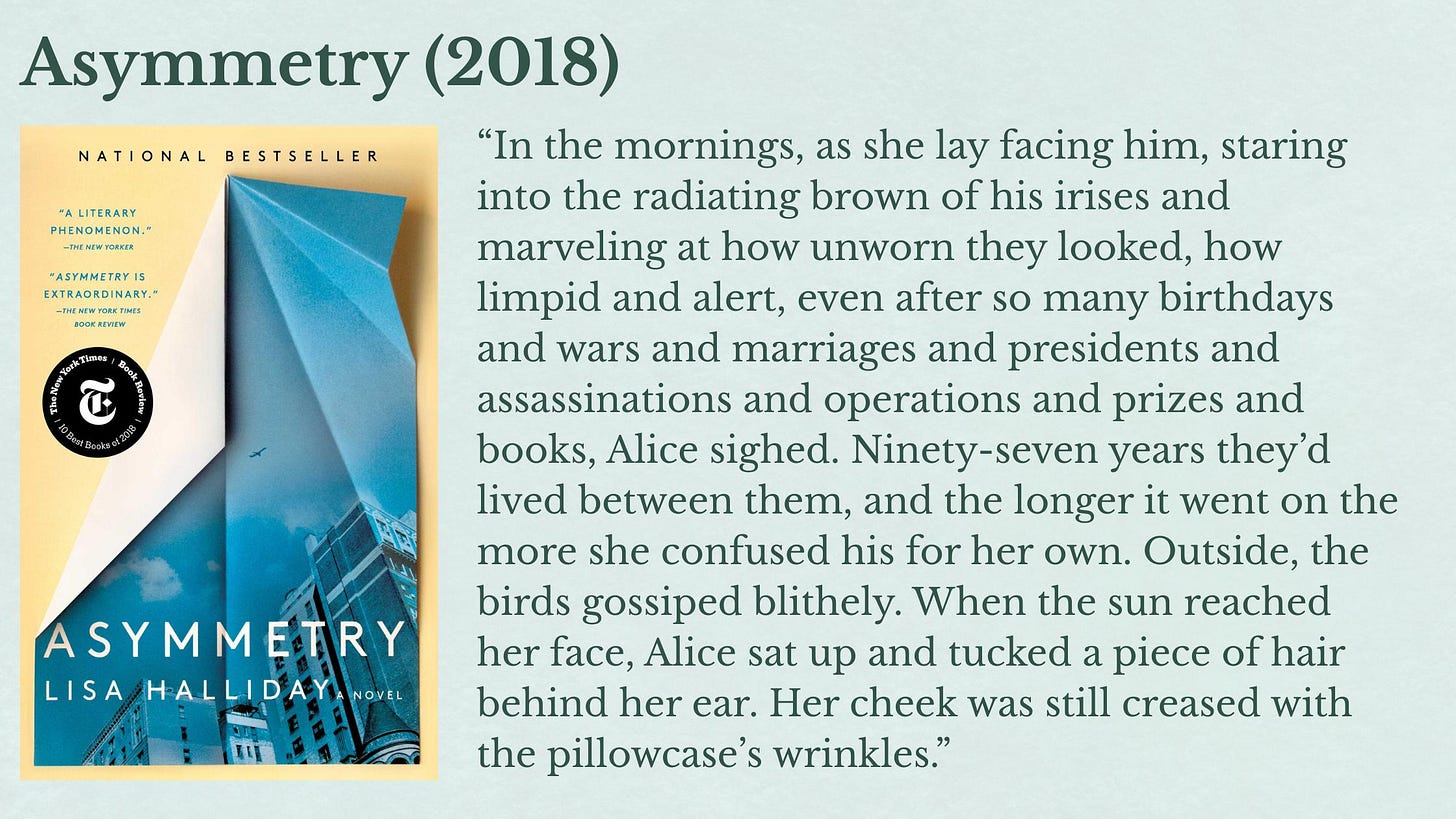
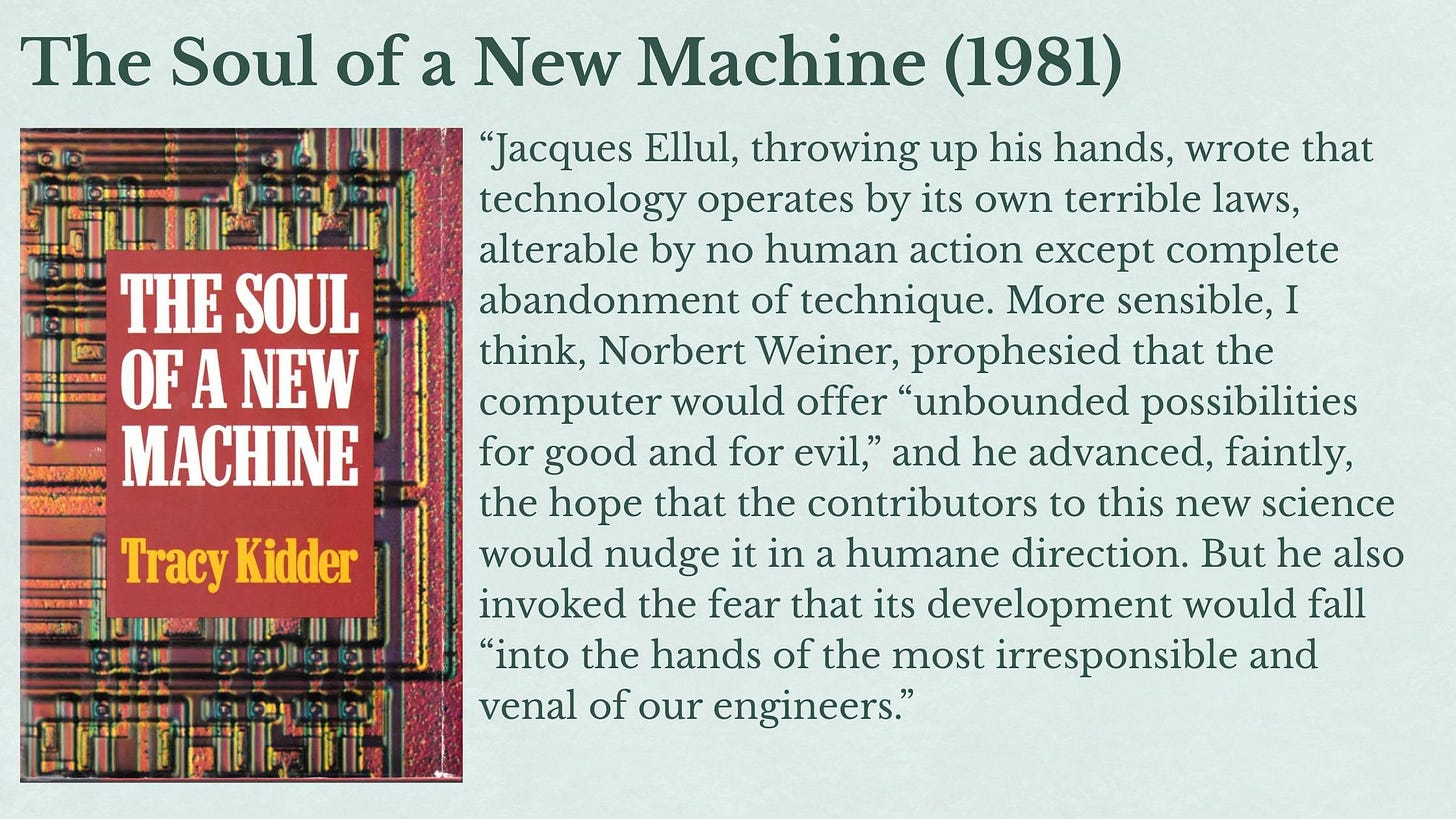
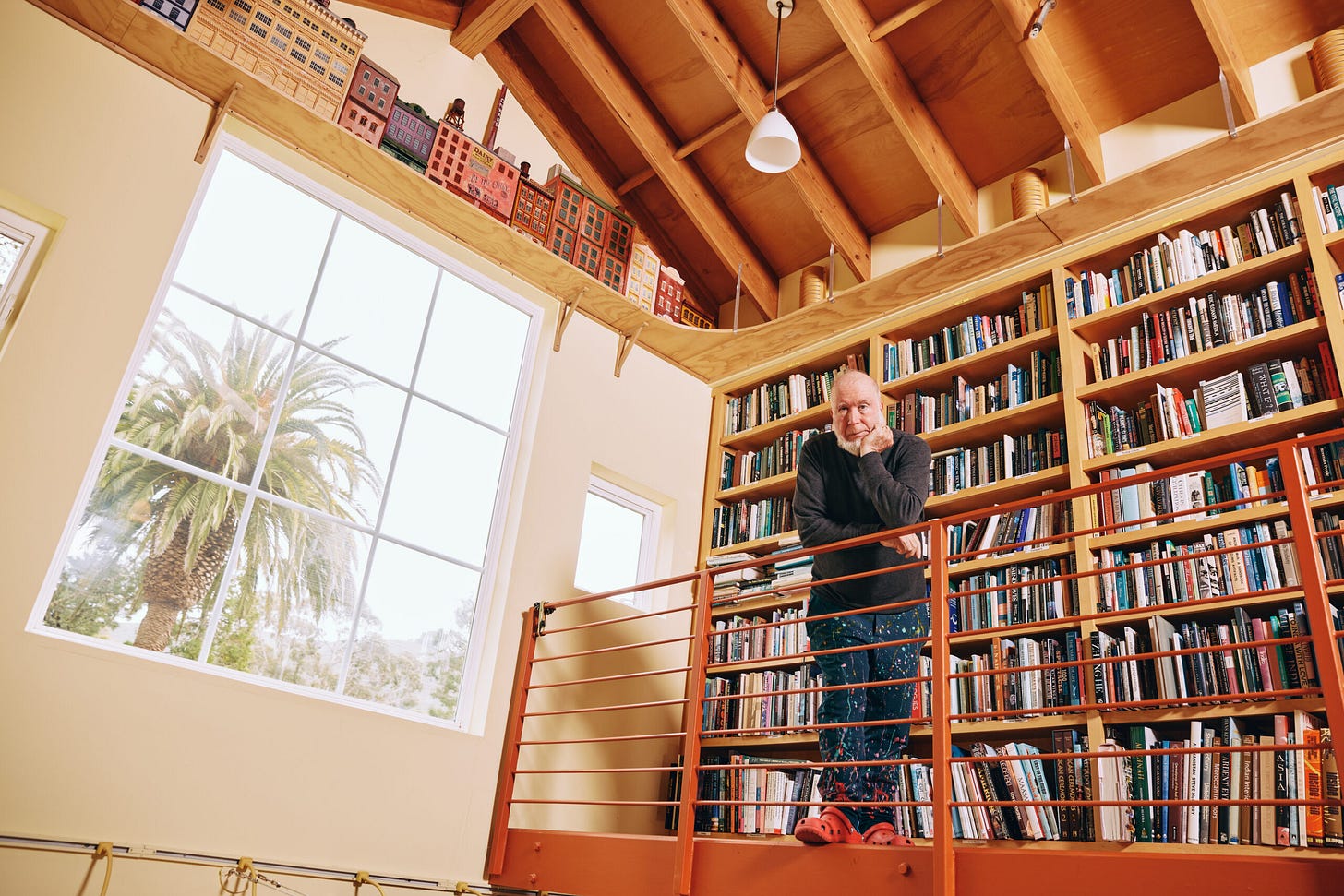



Still here!
Sad but true comment about the “never again” that keeps happening. What’s especially sad is it’s not even a situation where young people don’t listen to or understand the lessons of their grandparents’ generation, something that happened 80-100 years ago. The “never agains” are happening within a much shorter time frame, sometimes in as little as every 4-8 years. 🤦♂️